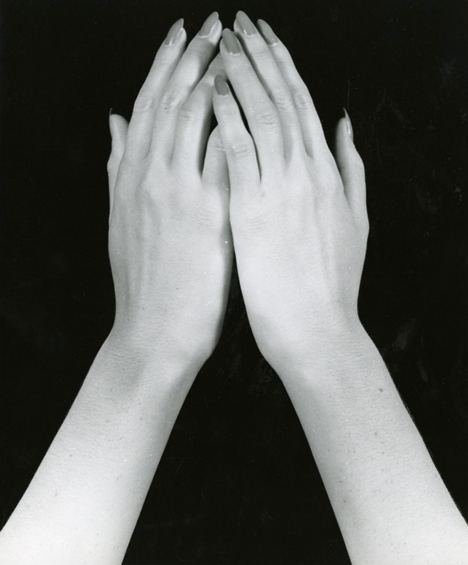I wanna hold your hand
Controversies over Muslims refusing to shake hands with non-Muslims are typical of the conflicts affecting today’s multi-religious societies. Appeals to the law are not the answer: processes of social self-regulation need to take their course beyond formal authority, argues Miloš Vec.
The politics of the body carry a high symbolic value and regularly occupy the media. This goes for controversies over instances of Muslims refusing to shake hands with non-Muslims. In 2016, these escalated beyond the local context not only because of the behaviour of those involved, but also because of the reactions of institutions and civil society. The result is a complex conflict that poses both state and society with an apparently insoluble dilemma: Should the cultural identity of the majority society and its social conventions be actively defended? Or does the western concept of democracy not also include a liberal, constitutionally anchored freedom of religion, which entails tolerance towards deviating customs? The fact that majority society now demands the social and cultural conformity of migrants and refugees makes the issue all the more contentious and theoretically interesting.
Much ado about nothing?
Essentially it is about different understandings of what constitutes an “appropriate” greeting between men and women. In an intercultural context, these understandings are apparently irreconcilable. Social conventions, religious precepts and moral scruples are invoked to explain and justify individual behavior, yet ultimately the law is expected to solve the conflict. Multi-normativity is what causes these disputes; however it might also be the key to a more considered handling of the differences.

Serie fotografica, Italia, 1975. Photo: Paolo Monti. Source: Wikimedia
Nevertheless, the question remains to what extent media coverage has contributed to a public over-reaction. As far as is known, it is a matter of a series of isolated instances. In autumn 2015, an Imam working at a refugee home in Rhineland-Palatinate announced that he would not extend his hand in greeting to the CDU politician Julia Klöckner, whereupon Klöckner cancelled the meeting. On 1 November 2015, the Muslim footballer Nacer Barazite of the Dutch team FC Utrecht refused to shake hands with the sports reporter Hélène Hendriks on live TV. In April 2016, the Swedish Muslim Green party politician Yasri Khan resigned following heavy criticism from his own party after he refused to shake hands with a female TV journalist. In April 2016, it was reported that two Syrian brothers living in the Swiss town of Therwil had refused to shake hands with their teacher at the beginning and end of lessons (a school ritual). They were 14 and 15 years old and their father is an imam. At the end of June 2016, at a private school in Berlin, a Shiite imam from Turkey refused to shake hands with his son’s headmistress. In July 2016, a Muslim pupil in Hamburg refused to shake hands with his teacher, who wanted to congratulate him on passing his final exams. In a much older case in Carinthia in Austria, an Islamic religious teacher and Sudanese citizen refused to greet women by shaking hands.
Despite the different local contexts, in all these cases the individual refusal to shake hands led to far-reaching social discussions about cultural and religious identities. The many press reports, glosses and commentaries published on the issue have formed an entire canon of cases, in which positions are aired and strong opinions often formulated, and which now exerts a major influence on current opinion. Insofar as online comments are permitted below articles on the topic, they show that the controversies are instrumentalized by political and religious extremists on both sides against a pluralist and tolerant concept of society.
Right hand symbolism
Although the real figures are probably much higher, instances of Muslim men refusing to shake hands with non-Muslim women is by no means – as is sometimes suggested – a mass social phenomenon. Moreover, media reportage primarily concentrates on debates in German speaking countries. Experiences from other European countries, not to mention other continents, very rarely make it into the headlines. There is no mention of the widespread convention among Muslims and Orthodox Jews throughout the Middle East not to shake a woman’s hand out of politeness. In view of the many violent conflicts worldwide, some outside observers find these debates strangely trifling. Even people who were deliberately and demonstratively refused a handshake have so far not claimed to have been injured in a legal sense. The lack of respect they experienced therefore counts as no more than a breach of good manners. It is primarily a question of disregard for social protocol, a classic case of impoliteness, and not a violation of a legal norm.
Nevertheless, it is not surprising that refusing to shake hands can cause irritation or insult. The handshake as a ritual of greeting is symbolically loaded, particularly in connection with the right hand. It expresses friendliness, commitment, physical proximity, and the consensual nature of the social contact. At the same time, unlike the hug, the handshake signals a formalization, in which polite distance is involved. For many, it embodies the self-conception of civil society, in which reciprocal social relations are not to be mistaken for friendship. The right hand is also highly symbolic in cultural-historical terms. One raises it not only in greeting, whether close up or from afar, but also to swear an oath, in other words a metaphysically founded, conditional self-damnation. Contracts can be demonstratively concluded with a handshake, as can words of honour and promises. An indication of the cultural significance of the hand is provided by Karl Wilhelm Friedrich Wander in his five-volume, nineteenth-century lexicon of German proverbs, which lists 924 proverbs and sayings involving the hand. The lexicon also includes numerous composite nouns equivalent to “handshake”, including, literally, “hand press”, “hand smack” and “hand rub”. How far the norm of shaking hands reaches back in time and space is a question probably best answered by ethnology.
If such elementary rituals are refused, an equally elementary counter-reaction is to be expected. Moreover, since the handshake is more or less represented throughout all continents, it is all the more astonishing that the current conflict seems to exist only in Europe. Political and social circumstances are causing these controversies to escalate, a fact that the actors are conscious of when they publicly insist on their principles. Immigration, flight from war and poverty, and a polarized public debate are the backdrop for the negotiation of cultural and religious identities concerning self and other. The handshake debate is one of the many conflicts taking place in multi-ethnic and multi-religious societies. Similar arguments can also be heard in the equally controversial burqa ban. The covering of the female face is seen as a symbol of repression, of the refusal to communicate and to integrate, and as a straightforward provocation. The need among particular social groups for precise laws stipulating a general or context-related burqa ban is correspondingly strong. Here, too, there are lively political, social, philosophical and legal debates that reflect the need for self-certainty and recourse to particular values within competing concepts of society.
Just a western standard?
In the Islamic context, religion is cited as a reason for refusing to shake hands, although it is generally agreed that this constitutes a specific interpretation not shared by all Muslims. The refusal to extend one’s hand to the other sex is based on a specific interpretation concerning the prohibition on physical contact in the Qur’an. According to one fatwah (the legal pronouncement of a Muslim authority, binding only for those that recognize this authority), it is forbidden to extend one’s hand to a woman who is not Mahram, i.e. a family member. This interpretation is in turn based on a Hadith (an account from the life of Mohammed) that states that “For one of you to be stabbed in the head with an iron needle is better for him than that he should touch a woman who is not permissible for him.”
Mutual respect can supposedly be expressed much more suitably by other gestures of greeting. The social refusal is thus religiously based; it is no coincidence that in some of the conflicts mentioned above, the actors are particularly close to religious authorities, or are religious authorities themselves. In the prohibition on shaking hands, religious and social rules cannot realistically be separated. Interestingly, in the public debate there is no mention of similar prohibitions in other religions. Orthodox Jews, Buddhists, and Hindus also observe specific prohibitions on physical contact, albeit often not for sexual reasons. Buddhists and Hindus fold their own hands to greet someone, irrespective of gender. In many Muslim societies, men also greet each other by placing their right hand on their chest, rather then shaking the other man’s hand. Conversely, the Maori hongi or the traditional Inuit greeting called kunik involves two people rubbing noses and foreheads, which to most Euro-Americans would seem too close for comfort.
While one side cites religion and respect for women outside the family as the reason for refusing to shake hands, the other side invokes a different set of normative arguments to demand that this most common expression of good manners be upheld. The most frequent reference is to social convention, according to which “in this country” one extend one’s hand to greet another person. The deliberate refusal to shake someone’s hand thus equals an affront. However, particularly in recent debates, the insistence on the handshake also has gender dimension: the handshake, as an appropriate way to greet a woman, is not only good manners but also a recognition of equality between the sexes. The refusal to shake hands with a woman draws associations with contemporary and historical forms of discrimination. The idea that the handshake as form of physical contact between the sexes should be prohibited because of its unchaste implications is considered a sexualized interpretation of a normal physical ritual. To insist on the handshake is therefore also to defend hard-won progress that should not be called into question.
Multinormativity in practice
The fact that, out of the billions of greetings that take place yearly, these disparate and sporadic micro-conflicts have been turned into a fundamental issue is the result of mutual intransigence. In the reported cases, the people involved or those close to them have escalated the conflict. Both sides invoke lack of respect and discrimination. School or school supervisory bodies regularly get involved. General norms are discussed and in some cases regulations are passed. Interestingly, in the Swiss case, the school initially ruled that the handshake should provisionally not be required. This ruling was later overturned by a directive from the Basel directorate of school, culture and sport, which stated that pupils could be obliged to shake hands. If they refused, they or their parents could receive verbal warnings, written reprimands and fines. In the Berlin handshake affair, the imam has announced that he will sue the teacher for insult and violation of religious dignity.
The normative quality of the conflicts has thus been altered in a number of ways: what was performative dissent over a social ritual – one need only recall one’s own botched farewells or congratulations – became legally relevant. In Austria, the constitutional court dealt with the case of a Sudanese teacher of religion, Mohamed A, whose application for Austrian citizenship had repeatedly been refused by the regional authorities on the basis of “significant shortcomings in integration”. The supposed disregard for basic European values of which the authorities accused Mohamed A. was based almost entirely on the fact that he allegedly refused to shake hands with women. The breach of a “fundamental principle of the European cultural realm” outweighed consideration of all Mohamed A.’s efforts to integrate. The constitutional court suspended the ruling, disputed the qualification of the handshake as a “custom of the European cultural realm,” and referred to other fundamental European values such as tolerance that are protected in foundational legal documents. Nevertheless, in Austrian legal praxis, the willingness to shake hands continues to be treated as an indicator of integration and a western attitude (most recently BVwG W128 1423915-1 of 5 June 2014). The conflicts were thus bureaucratized, some of them tried, and via directives partially normed. In other words, a juridification has taken place and court rulings have been issued. Here, parallels to the discussion on the veil are also evident.
Forms of public behaviour become legal questions. Of course, there is no such thing as a general legal obligation to shake hands. At most, regulations on handshaking exist in highly specific fields, for example in the social space of the school. The court judgments in turn provide opportunities for exegesis on how the shaking or not shaking of hands is to be interpreted in connection with rulings on naturalization. The right to a reciprocated handshake is not stipulated anywhere.
Will the law now bring calm? To expect such a thing would be a naive simplification of the function of the law. On the contrary, insofar as the law attempts to provide rulings and establish hegemony of interpretation, it escalates the conflict further. A new arena is opened up where the law is supposed to decide how religious and social norms are to be reconciled. Yet it can hardly be expected that, in the current febrile atmosphere, the conflicting parties will accept a legal ruling without complaint.
The point about expecting too much from the law nevertheless has a comforting aspect: it shows the continued strength of other normative orders. For that reason it is not just the law that ought to concern itself with rules of behaviour; civil society can and must also ask what forms of behaviour between men and women should be applied in a multicultural and multi-religious environment, beyond legal codification.
In 2014, the criminal lawyer Tatjana Hörnle rightly pointed out in connection with the discussion on the veil that “the model of an open civil society as the basis for functioning democracy can be defended against the opposite model of a segmentary society”. In this context, according to Hörnle, social practices that block social interaction, limit trust-based exchange to specific social units, and oppose the principle of sexual equality and the basic principles of open society play a critical role. This discussion is all the more important as long as it is a question of legal options for behaviour to which both sides of the conflict are entitled.
The call for the law to act as mediator in the debate over shaking hands thus has problematic aspects. The law heightens a conflict in the social field, whose conventions it does not normally regulate. Salutations traditionally belong to social mores, which are not normed by laws. Conduct manuals also merely reproduce existing norms, rather than creating norms themselves. Instead, what is happening is a process of social self-regulation, in which collective rules not imposed by an authority are central. Their transformation is subject to unpredictable trends; formal sanctions play no part.
Hence, disregard for the dictates of polite behaviour is rarely seen as legal infringement. Incidents of this kind are mostly classified in the public sphere as curiosities. One might even consider whether there is not a rule of conduct stating that the polite response to bad manners is to pay no attention – rather than explicitly to confront the “offender”. Whoever behaves “improperly” in society by disregarding particular conventions is not necessarily made aware of the fact and disciplined. Confident people ought to be able to tolerate deviations.
The Frankfurt school’s classic critique of law is that a juridification of the social would entail an expropriation of the mechanisms of social self-regulation. This critique acknowledges society as a social structure with its own rules, and emphasizes society’s autonomous processes of conflict resolution. The reference to the distinction between different normative forms is important and indicates the limits of what the law can achieve. Again, looking through the lens of multi-normativity reveals the various normative levels in debates about the refusal to shake hands. This differentiation helps not only to understand the grammar of argumentation on both sides. Above all in its focus on social convention as the real battlefield, multi-normativity also draws attention to the problems that arise when transferring public discourse into law.
Published 20 January 2017
Original in English
Translated by
Simon Garnett
First published by IWM post No 118 (Fall/Winter 2016)
© Miloš Vec / IWM post / Eurozine
PDF/PRINTNewsletter
Subscribe to know what’s worth thinking about.
Related Articles

Why abortion alone does not make women free
Claire Potter in conversation with historian Felicia Kornbluh
Last year’s overturning of Roe v. Wade took abortion laws in the US back to the nineteenth century. But despite the enormity of the setback, the moment provides pro-choice campaigners in the US with an opportunity to widen their political aims.

Despite Lithuania’s Europeanism, its policies on LGBTQ rights are sometimes closer to Russia’s. At the end of 2023, the Lithuanian parliament voted against amending the country’s notorious ‘gay propaganda’ law, in defiance of the European Court of Human Rights.





